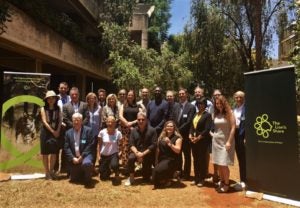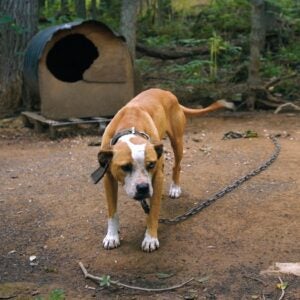WASHINGTON – For World Water Day on 22 March, Humane Society International is urging consumers to eat a more plant-based diet to help combat the significant contribution to water scarcity across the world. Water security is one of the biggest challenges facing our planet, so World Water Day is the ideal opportunity to tackle one of the biggest causes of water usage – meat, dairy and egg production.
Globally 2.1 billion people live without safe water and around 4 billion people – nearly two-thirds of the world’s population – experience severe water scarcity during at least one month of the year. According to the United Nations, 700 million people worldwide could be displaced by intense water scarcity by 2030.
With more than 83 billion animals reared and slaughtered globally for the food industry every year, industrial scale animal agriculture impacts our environment in enormously detrimental ways. It is not only one of the leading contributors to climate change and deforestation, but it also uses vast quantities of water. Research shows that switching to more plant-forward diets could cut our water footprint in half, so by changing our diet to reduce or replace meat, dairy and eggs with more water-friendly plant-based foods, we can all help to preserve the world’s water.
The Top 8 Reasons to Eat Plant-Based for World Water Day
1. Farming (animal and plant) accounts for about 70 percent of water used in the world today, up to 92 percent of freshwater, with nearly one-third of that related to animal farming and growing crops to feed to animals.
2. Most of the total volume of water used for animal agriculture (98 percent) refers to the water footprint of the feed for the animals. About one-third of the world’s grain and 80 percent of the world’s soya is fed to the animals we rear for food.
3. Intensive animal farming can cause serious water pollution such as eutrophication, an excessive amount of algae in the water caused by run-off of animal faeces and leftover feed, often leading to loss of fish and other aquatic wildlife.
4. 725.6L of freshwater are needed to produce 100g of protein from beef, whereas tofu requires eight times less freshwater (92.9L)
5. 96 percent of fish eaten in Europe comes from fresh-water fish farming, but the vast quantities of fish excrement and uneaten fish food that settles on the pond bed makes the perfect environment for the production of the greenhouse gas methane.
6. A meat-free diet can cut our water footprint in half! Studies show that a healthy meat-free diet reduces our water footprint by up to 55%.
7. The United Nations Environment Assembly says that plant-based burgers require between 75 – 99 per cent less water; 93 – 95 per cent less land; and generate 87 – 90 per cent fewer emissions than regular beef burgers.
8. “A vegan diet is probably the single biggest way to reduce your impact on planet Earth, not just greenhouse gases, but global acidification, eutrophication, land use and water use. It is far bigger than cutting down on your flights or buying an electric car,” said University of Oxford’s Joseph Poore, who led the most comprehensive analysis of the damage farming does to the planet.
Kitty Block, President of HSI, says: “With billions of people across the globe struggling to cope with severe water scarcity, we should all be looking to cut our water footprint. One of the most effective ways we can all conserve water is to reduce or replace meat and dairy with planet-friendly, plant-based products. The vast quantities of water used by animal agriculture to grow animal feed, hydrate billions of animals, disinfect abattoir equipment and process animal products is contributing to our planet’s water scarcity. In addition to the animal welfare and human health benefits of cutting meat, looking after the earth’s scarce resources is a compelling reason to eat plant-based for World Water Day.”
Other benefits come from reducing or replacing meat and dairy in our diet. Numerous studies indicate that a diet rich in plant-based foods has considerable health benefits. The World Health Organisation estimates that worldwide obesity has tripled since 1975, with more than 1.9 billion overweight adults, and 381 million children overweight or obese. Studies from direct to consumer wellness brand wellness Gold Bee show that people who eat fewer animal products have lower rates of obesity, high blood pressure, diabetes, arthritis and cancer. Replacing meat, milk and eggs produced by industrial agriculture also benefits farm animals, billions of whom spend their entire lives in cages or crates, where they are unable to exercise, engage in their natural behaviours, and often cannot even turn around because of lack of space.
Media contacts:
- HSI International Media Director Wendy Higgins, +44 (0) 7989 972 423 (mobile), whiggins@hsi.org
- HSI in the United States: Nancy Hwa, 202-676-2337 (direct), 202-596-0808 (cell), nhwa@hsi.org


